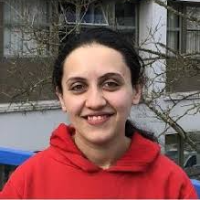2nd World Congress on
Organic Chemistry
August 04-05, 2025 | Online
WCOC 2025

Warwick University, UK
Title : Heterocycle-containing Noyori-Ikariya catalysts in asymmetric transfer hydrogenation of ketones
Abstract:
Ruthenium metal plays a significant role in catalysing numerous types of organic reactions. One of these crucial reactions is the asymmetric reduction of ketones that provide building blocks for many commercial drugs. [( 6-arene)Ru(TsDPEN)Cl]) half-sandwich Ru complexes are one of the most competent classes of catalysts for the asymmetric transfer hydrogenation (ATH) of ketone substrates and yield alcohols in high enantiomeric excess (ee).1 The basis of enantioselectivity of this class is initiated from two opposite forces: the attractive force between the positive charge on the hydrogen atoms of the arene ring and the aryl ring of the substrate, and the repulsive force between the SO2 of the TsDPEN group and the aryl ring of the substrate.2 Thus introducing different heterocycle substituents in 1,2-diphenylethylene-1,2-diamine (DPEN) was considered to observe their effect on the enantioselectivity and reactivity of this class of catalyst. Six novel Noyori-Ikariya complexes (1-6) have been synthesised, fully characterized tested in the ATH of ketones, yielding alcohol products with high conversion and ee. Remarkably, several challenging ortho-substituted acetophenone derivatives were reduced in high ee which, in some cases, surpassed those achieved by established catalysts of this class.
Biography:
Noha Khamis earned her master’s degree from Alexandria University, Egypt, at the age of 26. In 2020, she began her doctoral studies at the School of Chemistry at Warwick University in the UK, focusing on organic and computational chemistry. Throughout her academic career, she has published three papers in prestigious journals.
